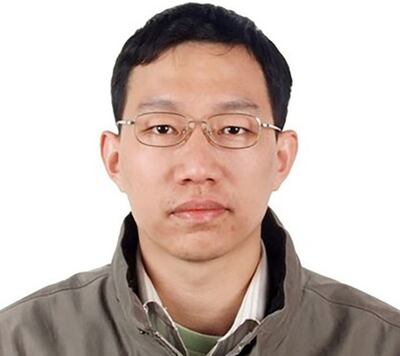Authorities in Shanghai have formally arrested an associate math professor at Fudan University on suspicion of murder following a stabbing attack that left his departmental ruling Chinese Communist Party (CCP) secretary dead.
The No. 2 division of the Shanghai People's Procuratorate said in an announcement on its official Weibo account that it had approved the arrest of Jiang Wenhua on suspicion of the "intentional homicide" of Wang Yongzhen, party secretary of Fudan's School of Mathematics on June 7.
"On the afternoon of June 7, 2021, Comrade Wang Yongzhen, Secretary of the Party Committee of the School of Mathematical Sciences of our school, was sadly killed," Fudan University said in a statement.
It said the murder had prompted "false rumors" online, and denied that Wang and Jiang had ever co-authored a paper, or that they had ever plagiarized any academic work. It also denied claims that the university had edited a Baidupedia article on either man.
It said Jiang had been hired on a three-year contract that had expired in June 2019. The university then signed a one-year contract with him, which he applied to renew in November 2020.
"As of June 7, 2021, the one-year employment contract signed between Jiang Wenhua and the school hadn't expired, and the school had not yet made a decision whether or not to terminate Jiang's employment," the statement said.
"There was no political testing involved in the assessment process," the university said, in response to online rumors that Jiang, who gained his PhD in the United States, had failed to pass the political element of his assessment.
Police video published at the time of the murder showing a bloodstained Jiang talking calmly to police, saying he had "received a lot of bad treatment" during his time at Fudan.
No explanation has been given for that claim.

Party loyalty counts
Fellow academics said it was highly unlikely that Jiang's review process hadn't included any political component, however.
"We are seeing a resurgence in political testing right now, with university entrance exams, research posts and [regular] jobs all requiring [passes in political tests]," Wang Gang, a former associate professor at Hebei Engineering University, told RFA. "That's an open secret."
Political tests, once a relic of the Mao era, have made a comeback under CCP general secretary Xi Jinping, and typically focus on Xi's personal brand of ideology called "Socialism with Chinese characteristics in the new era."
"The only standard that matters is whether or not you are aligned with the party," said Wang, whose former employers dismissed him at a similar stage in his career.
The Fudan murder has prompted a wave of public discussion about hiring practices at Chinese universities, which seek to recruit returning early-career academics with overseas PhDs at top universities, but then which place a string of conditions on the continuation of their employment, most notably, the ability to secure government funding for their research.
Wang said that while the system of employment review for early-career researchers may appear to boost competition and performance, in reality it just gives senior academics more opportunity to engage in corruption and favoritism.
"The trick is to pretend to have honorable intentions while really acting like a villain," Wang said of senior university officials and academics.
"This is a system that destroys good people ... Highly talented and specialized people are a bit quirky, and don't like to play politics," he said. "They can't be doing with all of the unspoken rules of [working life in] China."
Wang said the best outcome for Jiang would be if the authorities allow him to carry on his research in prison.
'Prejudices and hot air'
Xiao Gongqin, a professor of history at Shanghai Normal University, said Jiang's case will be closely watched by overseas Chinese academics who might be worried about taking jobs back in China.
Chinese courts regularly sentence people to death for homicide, but a suspended death sentence is typically commuted to life imprisonment after two years of good behavior.
Xiao said retention rates are still very high in Chinese universities compared with overseas, where tenured or tenure-track posts are few and far between.
Economist Zhang Wuchang called for further investigation of Jiang's case.
"The whole thing happened so fast, and there were no eyewitnesses," Zhang said. "The victim is dead and the suspect is in the hands of the police, so there is no way to go over the events and discover what actually happened."
"Now, the rumors and the slander are swirling, and prejudices and hot air are everywhere."
Beijing-based dissident Zha Jianguo said there should be some lessons to be learned from the homicide case, but that free public debate should be allowed.
"Regardless of the conclusions people reach on the matter, if we aren't talking about rumor or slander, then people should be allowed freedom of speech as set down in law," Zha said.
"It is wrong to suppress discussion that blames issues at the university, or that diverges from the official view," he said.
Reported by Xue Xiaoshan and Qiao Long for RFA's Mandarin Service. Translated and edited by Luisetta Mudie.
